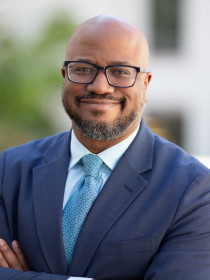
Michael Leo Owens
Connect with Michael
About Michael
Owens' research focuses on local and state politics and policy, policing and imprisonment, racial politics, and religion and politics. Overarching themes in Owens' writings include political representation and empowerment, policy advocacy, social inequality, neighborhood change, and social welfare. Owens, a past president of the international Urban Affairs Association, serves on the national advisory board of the Georgia Justice Project, as well as an associate editor of the Journal of Urban Affairs and member of the editorial boards of Perspectives on Politics Journal of Race, Ethnicity, and the City; and Politics, Groups, and Identities.
Contributions
In the News
Publications
Discusses the struggle that many of the wrongly-convicted people face in their quest to acquire compensation for unjust imprisonment along with aid for social reintegration.